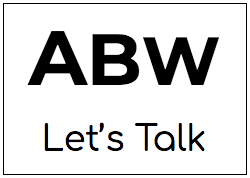Want Med Students to Be Better Doctors? Make Them Teach
Central Falls has the highest teen pregnancy rate in Rhode Island. Each year, through a program called "Sex Ed by Brown Med," students at the Warren Alpert School of Medicine at Brown University are given the unique opportunity to teach sex education to Central Falls middle-school students. As important as the program is in improving the knowledge and health literacy of the middle-schoolers, the program also pushed me and other medical students to hone our communication and listening skills in a unique way.
"A nonjudgmental approach, a willingness to hear and answer questions, and a firm grounding in physiology are essential in teaching sex ed," Dr Virginia Sadock, director of the Human Sexuality Training Program at NYU and a clinical professor in the Department of Psychiatry, told me. As Sadock points out, those same skills are also essential to building effective doctor-patient relationships.
Today, medical schools confront a difficult challenge: how best to combine the teaching of hard, technical skills—measured by the MCAT and board certification examinations—while at the same time teaching the so-called soft skills that cement the doctor-patient partnership, such as empathy, listening, and attentiveness. One answer to that challenge, and a critical part of every doctor's education today, lies in developing the communication and listening skills that will allow us to bridge the gap between our medical community and the patient. As the medical world becomes more data-driven and technology-reliant while the health literacy of patients lags behind, doctors must become more effective communicators.
Learning 'Knowledgeable Empathy'
"In the sex ed program, students learn firsthand how to communicate potentially controversial or difficult information and hear people's stories," assistant professor Dr Susanna Magee, faculty advisor for "Sex Ed by Brown Med," explained to me. "Learning how to communicate is especially difficult without actually doing it. You must do it to learn it well."
"Sex Ed by Brown Med" is a student-run elective that has become one of the school's most popular. It provides students with the opportunity to gain on-the-ground experience while becoming empathetic and effective stakeholders in middle-schoolers' health, education, and well-being. The program provides an opportunity for medical students to test-drive the key skills that will determine their success as physicians: communication, flexibility, patient-doctor collaboration, and what Magee calls "knowledgeable empathy."
"The medical students, hungry to be impactful and connect, are young enough to remember the feelings and thoughts of adolescence, and they are old enough and knowledgeable enough to use that memory to their advantage." Magee adds, "It's a perfect fit; both the students at the middle school and the students at the medical school feel the positive impact of the program."
Indeed, a survey of over 100 past "Sex Ed by Brown Med" student-teachers found that teaching sexual health education overwhelmingly increased medical students' awareness of their role as communicators. More than two thirds of the students surveyed reported an increase in their ability to "use clear language to communicate medical topics." More than half said they believed they were better able to communicate using "inclusive language."
Replacing the Abstract With Real-World Experience
My own experience in the program forced me to think on my toes and taught me how to gauge my students' comprehension of material relevant to their personal health. Most important, it encouraged me to engage in a dialogue with the students about some of the most personal and intimate topics that doctors discuss with their patients—including sex, sexuality, consent, self-esteem, high-risk behaviors, alcohol, and drugs.
My class of middle-schoolers was a shy and quiet bunch, making it hard to tell whether they understood, were embarrassed, or were just totally disengaged. For that reason, our most successful session was also one of the most basic: What are condoms, how are they used, and where can someone get them? Somehow, our reserved class turned the lesson into a rowdy call-and-response.
"What's the best way to protect against pregnancy and STIs from sex?""Condoms!"
"How old do you have to be to buy condoms?" "Any age!"
"Are two condoms better than one?" "No way!"
This went on a loop for about 20 minutes, with everyone from the class troublemaker to the shyest girl in the group shouting along. From then on, we tried to make every session have some element of call-and-response. It was a bigger lesson as well, as it turns out that a version of call-and-response also works well in the exam room to check patients' understanding of everything from drug dosing to discharge instructions. Lesson learned: When we included them in the conversation, our class taught us how they learned best.
Rather than meeting patients in the emergency room or inpatient wards, through the "Sex Ed by Brown Med" program, med students meet young students in the real world. Instead of studying about social determinants in the abstract, we see their effects on individuals, up close and personal through the dramatic role reversal that turns student-doctors into public school teachers. When it comes to helping medical students understand the critical communication tools they need to connect with their patients, make students become the teachers.
Cite this article: Want Med Students to Be Better Doctors? Make Them Teach - Medscape - Jul 27, 2018.



